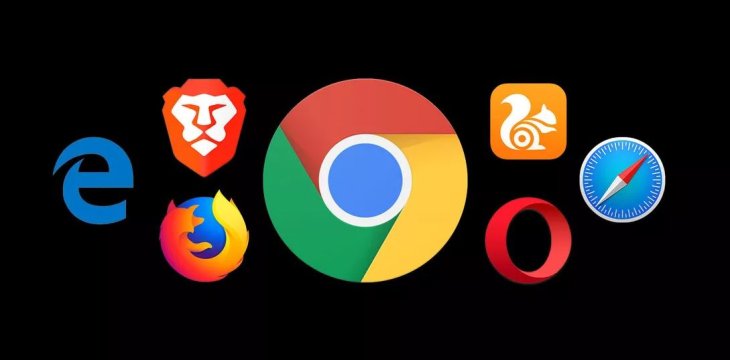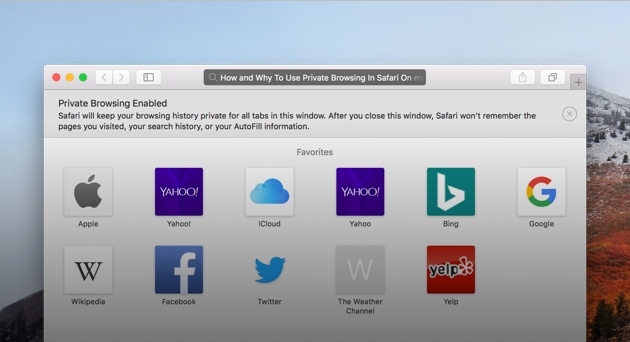Google's New Policy Will Cut Down Publishers' Ad Revenues By 52%
Dhir Acharya - Aug 23, 2019

On Thursday, Google’s Chrome team proposed a “privacy sandbox” designed to bring benefits for both sides: targeted ads that do not infringe user privacy.
- Google's Project Toscana: Elevating Pixel Face Unlock to Rival Apple's Face ID
- Google Offers Voluntary Buyouts to US Employees Amid AI Push
- Google SynthID: Everything You Need to Know About AI Content Detection
On Thursday, Google’s Chrome team proposed a “privacy sandbox” designed to bring benefits for both sides: targeted ads that do not infringe user privacy. This is an important development in such an area where Chrome has lagged competitors.
Browsers already have security sandboxes to confine malware as well as limit potential damages. According to the proposal, published by the company, the proposed sandbox will restrict tracking technology.

The privacy sandbox, as stated by Chrome engineering’s director Justin Schuh, is:

For instance, some private data would be restricted to the browser, Brave Software also adopted this approach for its privacy-focused browser. It could also restrict sharing personal information until the data is shared in a large group of users of technologies dubbed differential privacy and federated learning.
Privacy has become a concerning matter to giant tech firms, with Apple spending a lot of effort. But the problem is challenging for Google as it offers free, useful services with ads. Additionally, it’s among the largest firms used by app and website publishers to display ads. Chrome has been pointed out for this issue due to its ad business affecting privacy protection.
The privacy sandbox, which results from months of work done by researchers at Google, is a huge leap that can help the tech giant out of the privacy scandal if the tool works as well as is accepted by advertisers and websites.

While we can’t tell how the privacy sandbox will impact on the current situation, we cannot deny Google’s effort to make changes. In Q2, Google got 83 percent of its revenue from advertising, equal to $33 billion, so it makes sense if the tech giant wants to earn as much profit as possible from ads.
Targeted ads are more valuable to publishers. According to study figures released by Google, when browsers block cookies for tracking user behaviors and targeting ads, publisher’s revenue from advertising will decrease by 52 percent.
Brendan Eich, Chief Executive at Brave and former leader of Firefox browser, said it’s good news that Google is taking privacy seriously. However, he’s not really confident about how the effort will succeed. Eich, who thinks that Google is the last company we can trust to put in efforts, said that:

Tracker blocking becomes a common practice
Safari from Apple is the highest-profile browser doing this, using its intelligent tracking prevention technology. Firefox has started set blocking tracking as default on its browser while Brave has done the same thing since 2016 when it was launched. Plus, the new Edge browser from Microsoft will also block tracking.

There’s another problem with blocking cookies that track users. It is that advertisers and websites continue to track people using fingerprinting technology. While this tech doesn’t have the equal effect with tracking using cookies, it helps businesses identify users and all big browsers are working to block this technology. Schuh said:

People have been displeased with online ads due to privacy concerns, like a popular saying points out: If you aren't buying a product, you are the product. It means free apps and sites with ads survive by selling user data to advertisers.
However, companies can’t make people pay for everything either. News publishers are turning to paywalls, which limits the number of free articles accessible to users, but this practice restricts their readerships and essentially means that richer people can better protect their privacy.


But declared by Mozilla's director of security and privacy products Peter Dolanjski, privacy can’t wait. When the company contacted publishers before making anti-tracking tech as default, many publishers were aware of the revenue loss but also view privacy as a long-term strategic interest.
Properties of the privacy sandbox
The proposal includes some mechanisms for shutting down conduits currently leaking identifying and personal info.
FLOC (federated learning of cohorts): using machine learning software built in the browser for assessing users’ interests. Then, this data can only be transferred to advertisers if it indicates large groups of users so that advertisers can target ads without knowing each person’s details.
Trust token: publishers and advertisers can use this to decrease ad fraud by dividing users into two segments: untrusted and trusted. Ad frauds include bogus views as well as clicks of ads which mean advertisers have to pay money even if no actual human see the ad. Today’s ad frauds mostly track individuals only.
Conversion measurement: a technology that will allow advertisers to figure out which ad is successful. The process is complicated, especially when consumers may see the ad on one site then buy the goods on a different one; however, even with straightforward cases, Google still acknowledges weaknesses in its proposal. So, this technology can act as one of the efforts required to reproduce valid use cases for advertising on the web in a way that can preserve privacy.
Privacy budget: which will limit the amount of personal data accessible to a website.
Though the proposal is comprehensive, it brings a lot of challenges. It can only succeed if it wins over advertisers, publishers, as well as other browser makers. And Google is making another proposal for new web standards, a process that needs collaborative development and takes years.
Featured Stories

ICT News - Feb 19, 2026
Escalating Costs for NVIDIA RTX 50 Series GPUs: RTX 5090 Tops $5,000, RTX 5060 Ti...

ICT News - Feb 18, 2026
Google's Project Toscana: Elevating Pixel Face Unlock to Rival Apple's Face ID

Mobile - Feb 16, 2026
Xiaomi Launches Affordable Tracker to Compete with Apple's AirTag

ICT News - Feb 15, 2026
X Platform Poised to Introduce In-App Crypto and Stock Trading Soon

ICT News - Feb 13, 2026
Elon Musk Pivots: SpaceX Prioritizes Lunar Metropolis Over Martian Colony

ICT News - Feb 10, 2026
Discord's Teen Safety Sham: Why This Data Leak Magnet Isn't Worth Your Trust...

ICT News - Feb 09, 2026
PS6 Rumors: Game-Changing Specs Poised to Transform Console Play

ICT News - Feb 08, 2026
Is Elon Musk on the Path to Becoming the World's First Trillionaire?

ICT News - Feb 07, 2026
NVIDIA's Gaming GPU Drought: No New Releases in 2026 as AI Takes Priority

ICT News - Feb 06, 2026
Elon Musk Clarifies: No Starlink Phone in Development at SpaceX
Read more

ICT News- Feb 19, 2026
Escalating Costs for NVIDIA RTX 50 Series GPUs: RTX 5090 Tops $5,000, RTX 5060 Ti Closes in on RTX 5070 Pricing
As the RTX 50 series continues to push boundaries in gaming and AI, these price trends raise questions about accessibility for average gamers.

Mobile- Feb 17, 2026
Anticipating the Samsung Galaxy S26 and S26+: Key Rumors and Specs
The Samsung Galaxy S26 series is on the horizon, sparking excitement among tech enthusiasts.

ICT News- Feb 18, 2026
Google's Project Toscana: Elevating Pixel Face Unlock to Rival Apple's Face ID
As the smartphone landscape evolves, Google's push toward superior face unlock technology underscores its ambition to close the gap with Apple in user security and convenience.
Comments
Sort by Newest | Popular